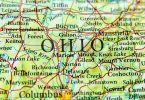 While some people like to head out on the highway to just enjoy a long drive and others love seeing the world from above the clouds, many people look at travel as an unpleasant chore. From commuting during rush hour traffic to overcrowded trains and the many pains of air travel, travel companies often face the brunt of traditional and social media backlash.
While some people like to head out on the highway to just enjoy a long drive and others love seeing the world from above the clouds, many people look at travel as an unpleasant chore. From commuting during rush hour traffic to overcrowded trains and the many pains of air travel, travel companies often face the brunt of traditional and social media backlash.
In this week’s Friday Five – PRSA’s take on the week’s biggest news stories —we will discuss the world of travel and tourism from a public relations perspective. We’ll discuss what we learned this week about maps, cruise ships, planes, trains, and automobiles.
Here’s what we learned this week:
1) Not All Airline Hate Tweets are Created Equal
As Fortune’s Christopher Elliott puts it, “Raging against airplane travel is becoming a serious national pastime.” If you’ve seen tweets from family and friends while experiencing the highs and lows of air travel, you know he’s absolutely correct. Elliott points to a new survey by Crimson Hexagon, which studied five domestic airlines and found that average negative sentiment is 47 percent, while positive sentiment barely averages over 20 percent.
John Donnelly, senior vice president of global sales and marketing at Crimson Hexagon, sees the negative tweets as a missed opportunity for airlines. He explains, “What airlines need to understand is that every tweet from a disgruntled customer is an opportunity to also connect with that customer and strengthen the relationship. Simply replying to a tweet with a canned corporate apology isn’t enough anymore.”
2) Air Bags Deflate Auto-Parts Giant Takata
This past Tuesday, Takata nearly doubled its recall of airbags, making this recall the biggest in history. Nearly 34 million cars and trucks nationwide were declared “defective” because of Takata air bags. The air bags can shoot out metal shrapnel when deployed, and have been responsible for at least six deaths and more than 100 injuries.
How has Takata communicated this recall? According to an article in PRWeek yesterday, Takata has issued just one press release. In addition to Takata’s communications, or lack thereof, it will be interesting to see how individual automakers who have used Takata’s airbags also respond to this issue. Takata’s customers include BMW, Fiat, Chrysler, Ford, General Motors, Honda, Mazda, Mitsubishi, Nissan, Subaru, Toyota, and Daimler Trucks.
3) Sail Away on a Floating Cesspool of Germs
When travelers set sail on a luxury cruise ship, they expect to get a week of rest and relaxation, not a week of norovirus. From highly contagious gastrointestinal viruses, to sexual assault and crime, to drowning incidents, travelers rarely think they will fall victim on their vacation, but it does happen. Think you’re covered by United States protections while cruising? Think again. According to ProPublica’s detailed report, cruise lines leaving from U.S. ports are often registered outside the U.S.
While travel comes with inherent risks whether you’re cruising or not, travel public relations professionals working at cruise lines, hotels and others businesses in the vacation industry have a responsibility to inform executives that even though laws in other countries may be lax compared to United States, companies should consider strengthening policies on their own. When facing public scrutiny, the cruise lines that do maximize their standards will fare better than others who do the minimum.
4) Racist Maps are Bad for Business
Google issued an apology this past Tuesday after a user discovered that typing in a racial slur returned results for the White House. According to Mashable, Google has reported that its popular Maps service has come under attack recently.
“We have been experiencing escalated attacks to spam Google Maps over the past few months,” Pavithra Kanakarajan, a member of the Google Map Maker team, wrote in a note to users on May 8. “As a consequence, we suspended auto-approval and user moderation across the globe, till we figured out ways to add more intelligent mechanisms to prevent such incidents.”
5) Amtrak Fails Crash Victims
Sometimes accidents happen that cannot be prevented. Whether or not last week’s Amtrak 188 accident was preventable has yet to be determined by federal investigators. Regardless of the findings, Amtrak has a responsibility to every passenger that was aboard the train, and according to Josh Gotbaum of Politico, they’ve failed in the aftermath of this tragic event.
Gotbaum said, “Amtrak appeared to have no plans or procedures for responding to the emergency, much less training of its employees and practice implementing them…Six days after the accident, I still had no information from Amtrak about whether they’ll reimburse my medical expenses or what they’ll do about my lost luggage and medications—just a statement that, sometime this coming week, I’ll receive another form.”
Even though accidents of this magnitude are rare, Amtrak should have been prepared to respond. What could they do differently? Let us know what you think in the comments section below.
Rosanne Mottola is public relations manager at the Public Relations Society of America. You can follow her on Twitter @RoeMoPR.






